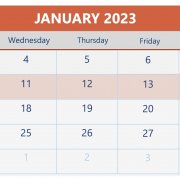Korian: a leading multinational for a sector such as nursing homes and mental health care that in our country requires innovation and business muscle

On May 22, 2022, a breakfast was held at the headquarters of Roland Berger in which Mr. Jaume Raventós, CEO of Korian Spain, acted as a guest. What follows is a summary of his intervention.
The presentation used by Mr. Raventós can be seen below:
Presentacion-Korian-Spain-RB-v3
The Korian group
A large international presence
- An international group that in 2021 had a turnover of 3.9 billion euros, of which 68% came from residential care; 20% health care; and 12% community care
- Listed group, operating on the Paris Stock Exchange
- In residential care it has 721 residences
- In healthcare 170 facilities
- In community care, a network of home care, with 194 centers
- It is a leader in residential care in France, Germany, Belgium and Italy
Main lever of growth
- The main lever for growth is to offer a continuum of care for an aging and fragile population
Heavy weight on quality control
- More than 200 people dedicated to quality control
- Growing weight in its establishments of external accreditations
Type of Korian services
- Long-term care (nursing homes)
- Health services
- Primary Care
- Specialties and post-acute
- Community care
- Home care
- Residential solutions
Korian has the ambition to create a great mental health group
- It is already the third group in Spain, with ITA, after the Institut Pere Mata and Domus
- It is already the third group in France, with the acquisition in 2020 of INCEA
- The revenue target for 2022 is 250 million euros
Korian is considered a player well positioned for growth
- Increased demand, with the growth of people over 80 years of age
- Increased dependency on Europe
- Very fragmented market
- Leadership position, with high entry barriers and few actors with scale
Korian values
- As a service provider for frail people, having strong values is essential
- Korian’s vision is to provide innovative solutions for a more inclusive society
- Some recent incidents of other actors in the sector demonstrate the importance of this commitment to values
Korian in Spain
Two great lines of activity
In Spain, Korian has two main lines of activity: nursing homes and mental health services.
Care for the elderly: residences, Seniors
- 18 accredited residential centers
- The expected turnover in 2022 is 46 million euros
- It has more than 2,116 beds and is present in Andalusia, Mallorca, Valencia and Castilla-La Mancha.
- Has specialized units
- Behavior Disorder Unit
- Rehabilitation Unit
- Alzheimer and Dementia Unit
- Neurorehabilitation Unit
- Day Center Unit
Mental Health: ITA
- Since its foundation in 2016, ITA has been growing rapidly, both organically and inorganically
- It is organized by specialties
- Eating disorders, 33% of activity
- Behavior disorders, 27% of activity
- Personality disorders, 9% activity
- General psychiatry, 20% activity
- Neurodevelopment and rehabilitation: 11% activity
- It is the largest mental health group in Spain, with more than 5,000 patients a year; more than 38 specialized centers and more than 1,000 professionals
- Growth is constant, even during the pandemic, with an expected turnover of 58.8 million euros in 2022
- Incorporates great digital innovation, both in terms of satisfaction surveys, such as patient management and agendas, and in digital therapies
- ITA has a network of healthcare partners (Quirón, DKV, Vithas, Keralty, etc.) and academic partners (several Universities)
A great growth potential for Korian Spain
- Without prejudice to the great possibilities for growth in the areas in which Korian is already in Spain (nursing homes and mental health), in relation to Korian’s care offer at a global level, Korian Spain is neither in primary care nor in home care, looming there a great potential for growth
The challenges of the future of care services for vulnerable people
Both the residential and mental care sectors have significant challenges:
General challenges of the sector of vulnerable people
1. Sector concentration vs. fragmentation. Entry of large international groups. Overcoming small-scale farming and professionalization and renewal of the sector.
Senior sector
2. Residential sector, change of model, from large residences of around 200 beds to smaller and more specialized units.
Mental health
3. Financing mental health benefits
-
- In the public sector: insufficient means and financing
- or private sector:
-
-
- Role of health insurers. Insufficient and unspecific coverage (in general, only 20 visits and 30 days of hospitalization). Covering mental health care well is a major challenge for health insurers.
- School insurance. INSS (1.2 euros/family/year)
- Possibilities of public/private collaboration. The insufficient means in the public sector and the growing needs offer great possibilities for public collaboration.
-
4. Prevention of mental health problems. Involve the educational system and families
5. Very complicated future due to the lack of professionals. New professional roles. It seems evident that only the development of new professional roles and the promotion of digital therapies will make it possible to advance in this field, where the lack of professionals is frightening and difficult to solve in the short and medium term.
6. Post-COVID stage, until when?
7. The role of digital technology and new surgical and pharmacological therapies







